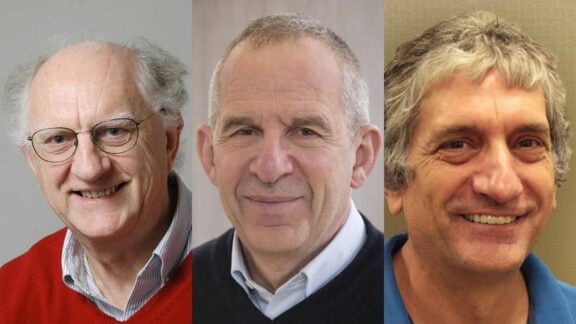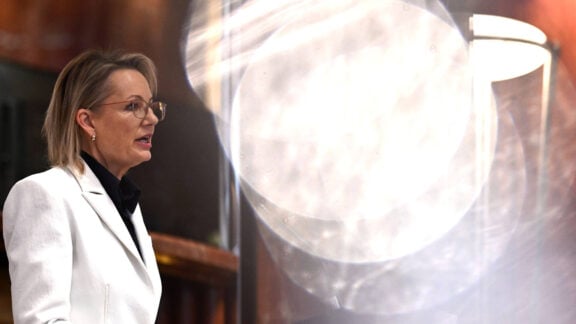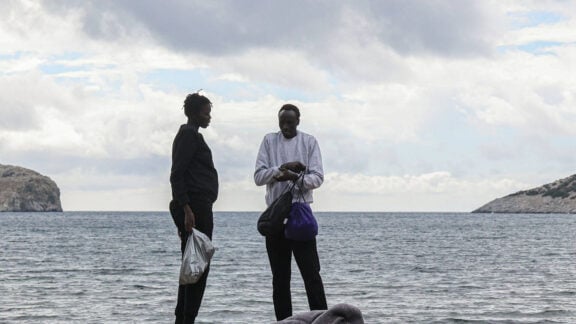There is increasing dissent to the suite of race theories and there are swells of vehement opposition, not all aligned, to what are argued as the politics of identity. The distinguishing of identity is real and, for better or worse, people are labelled, and prejudices, stigmatisation and other associative identity issues leading to discrimination are fact, the norm. To resist understanding the origins of a problem culminates in the perpetual languishing of the problem – and in racism’s case, where we fail to call out the cause of racism we perpetuate unfairness and discrimination.
Where critical race discussions are denied scholarly public examination and of postulations of the ways forward we remain hostage to racial divides. The hostile resistance to the undertaking of serious national conversations on racism has led to belittling surface-level discussions dangerously fuelling racism. The outrage is reduced and filtered through narrow lenses of whatever imaginable vantages are available; even through discrimination-laden societal instruments. We are often limited to the narrowest corridors of discourse – for instance through comedy, satire, theatre, books, activism and rallies. These are one-sided conversations and compartmentalised even if they are on the mark in what they are trying to relay. Without a national conversation – an ongoing conversation poly-culturally membered – we risk chasm-like divides, we risk pitchfork standoffs, we risk anger and rage, we entrench racism.
Only a few decades ago, critical race theorisations sought to broker national conversations through comedy. Greek Australian Nick Giannopoulous sought to ‘diffuse’ racism by mocking racism with his theatre production and subsequent syndicated television series Acropolis Now, and subsequently with Wogs out of Work and Wog Boy. They were risk-laden enterprises because mockery is a dicey and often misunderstood medium. Mockery depends on the audience’s ability to comprehend, and that they are well-versed in often deep-seated issues.
In using mockery to reflect on racism one can degenerate oneself to the reductionist and minimalist. Comedy is not a serious discussion but a flickering portrayal, and the portrayal can be opaque, flimsy with its intentions lost to an audience that is without scholarly comprehension.
The derivation of ‘wog’ is not clear but its original and contemporary meanings are clear and aggressively divisive, with the express intention to be cruel and inhumane, determined to separate people, to discriminate. ‘Wog’ cannot be diffused in its meaning. It is not true, as some argue, that wog has devolved to a contemporary slang that suggests wog is equivalent in meaning to ‘mate’. A ‘wog’ is not a mate; a ‘wog’ is someone different. It is a derogatory term and will always remain so. The argument that it’s okay for ‘wogs’ to call each other ‘wog’ and similarly so with ‘niggers’, etc., reduces people to a less-than inheritance in reference to a view of oneself.
A wog is someone whom white privilege frowned upon. Keeping the term alive keeps white privilege furiously burning. Wog is a derogation that accommodates institutionally structured assimilation or perish vantages. In mocking oneself it is often argued as self-deprecating, intending mockery as a vehicle to diffuse tensions between parties. In dissing oneself or on the heritage-laden identity, the affected are reduced to accommodating the dominant culture, to allowing the dominant culture to continue peddling itself. The assimilated perpetuate the power of the oppressor, when with a sense of the inescapable victim they reduce themselves to a remit of scratching out what opportunities – and the quid – that one can within a dominant culture but without upsetting the dominant culture.
Calling oneself a ‘wog’ or a ‘nigger’ is a self-affirming negative stereotype and imagining and contrary to our inalienable common humanity. Wrongs must be railed against, called out, yes mediated, but certainly not affirmed. Wog and nigger must be disassociated in all forms. Any association to such derogation diminishes the positive self, the psychosocial self, dampens human worth and shrinks self-esteem and the damage can be irrecoverable.
A wog is someone who was not white. A wog continues to be someone who is not white. The production of Wogs out of Work attempted to portray white privilege and its pomposity, however, because of the relentless lampooning of oneself there was instead a deepening alignment in the mind’s eye of the prejudices hideously sold by white privilege. Assuming oneself as a wog or nigger asserts white privilege and validates it as ‘well-adjusted’ – or at least by comparison. In Wogs out of Work, second generation Greek Australians were effectively characterised as ‘unemployed’, as ‘dole-bludgers’, fixating their ‘pride’ in owning cars (the Valiant Pacer).
In the production Wog Boy, the character Steve flouts false negative perceptions held by white Australia. Steve cashes in on these negative held stereotypes, validating them and becomes ‘famous’. Inherently the message is that there is a place in white Australia for the ‘wog’. It is the worst form of assimilation and validates the oppressor and oppressed dichotomies. There are no binaries between the oppressor and oppressed, only dichotomies.
My Big Fat Greek Wedding similarly entrenched generalised prejudices and difference. There was little to be understood about inalienable common humanity in the pernicious viciousness of the lampooning. There was only one scene that resonated as a relatively accurate portrayal of Greek cultural norms and which would resonate with any right-minded individual. That was the scene where the father, Kosta, was sitting alone, seemingly in deep thought. His partner Maria walked in on his thoughts. Kosta and Maria reflected an authentic conversation in their concern for their daughter’s looming marriage. At long last they were human and real. The conversation they shared could have been my father and mother – could have been anyone’s parents.
– Kosta: “Is he a good boy? I don’t know.
“Is he from a good family? I don’t know.
“Is he respectful? I don’t know … because nobody talks to me about nothing no more.
“A respectful boy would come here and ask for my permission.”
– Maria: “They fell in love. It happens.”
Despite the nuances with this conversation and modernity’s and post-modernity’s unfolding social justice vocabulary in terms of self-determination, it is a conversation that resonates with every parent and that brings on a coming together in terms of human understandings and meanings.
Critical race theory is a framework of intersections on the examination of societies and cultures and intertwined are discriminatory laws and power imbalances. It is our duty to strive to do away with discriminatory laws and to correct power imbalances and not to reinforce them. The tragedy of white supremacy, nowadays sold as white privilege, continues. White supremacy and its racialised powerbase maintain their horrid obscenity despite the outrage that has been increasingly unleashed at them during the last 100 years following centuries of white privilege expansionism.
No nation that peddles a dominant culture is free from the ugliest forms of racism. Privilege in its rawest self is about exploitation, but even in its greatest calm it is about selfishness. In all its forms privilege is an intended means of control. Those who scoff that there is no oppressor and oppressed dichotomy deny grim realities. Self-labelling oneself as a ‘wog’ or ‘nigger’ evidences the grim. These derogatory terms subordinate the ‘wog’ and ‘nigger’ to white privilege scholarship – to a dominant culture that one must deal in instead of calling out. ‘Colour-blindness’ can only arise in an inalienably equal poly-cultural society – one where differences are positive norms and the shared storytelling of these norms brings people together. An educative transformative approach is more powerful and profound than the presumption that rights-based laws alone in race-conscious-based societies can equitably transform societies to inalienable egalitarianism and to the embrace of coming together understandings. The political and various educative landscapes need to be soaked in shared stories, in storytelling where society is illuminated to not only the norms of one another but also to the experiences of one another.
We can discuss critical race theories and frameworks, liberalism’s rights-based remedies, civil rights scholarship, anti-discrimination efforts, the intersections of this and that, and other critical pedagogy, but in the end racism is racism despite its veils and layers. The onus on racism needs to be two-fold; calling it out and shining the light on the ways forward. But the ways forward are intertwined with the calling out of the racism. Racism is not called out as often as it should be, and the calling out is often poorly articulated or it’s called out by proxy – that is by a white person who hopes to mean well. Hence there remain many Australians who do not understand that racism exists or that it can be overwhelming. They instead regress to a ‘let us move on’ narrative.
Internalising racism is toxic. Any serious commitment to challenging racism must be an intellectual one, not a reductionist one where we mock ourselves and perpetuate the racist’s reality – the ‘black face’ minstrels, Wogs out of Work, etc. Racial power imbalances remain maintained.
Wog is a racial slur.
Paul Keating was right about institutional racism, of white privilege when he said that an event such as “the Cronulla riot has in its antecedents the notion that somewhere in officialdom at the top of the country it’s all right to think poorly of people who come from a different background to yourself”.
“This is, I think, a dreadful letdown for the country after it had succeeded so greatly in settling so many people from abroad.”
The Bulletin was a highly influential political newspaper/magazine first published in Sydney in 1880. Its final issue was published in 2008. However, its motto had originally been ‘Australia for the White Man and China for the Chows’. It was changed in 1886 to ‘Australia for the White Man’. This premise-laden masthead slogan was only removed in 1961.
In 2015, the production Wog Boys performed to large audiences around the nation. I understand the well-meaning intended when Nick Giannopoulos discussed the term ‘wog’, “It’s become a brand for this type of comedy, which is a good thing. I’d much prefer it to be a brand than a racist term.” Despite understanding the premises behind his argument, I disagree. It remains a racism term. It is not true that we can laugh off racism – this has been tried right across the world for three-quarters of a century and it does not work. It deals in a constancy of diminution, trauma and reinforces white privilege.
Some now claim that ‘wog’ is an “endearing term”. Some argue this of ‘nigger’ or ‘Abo’. There is nothing endearing about these terms. There is nothing positive, nothing good, about calling oneself ‘wog’ and ‘nigger’. These terms do not ‘diffuse’ racism. They are racism.
* Gerry Georgatos is a suicide prevention and prison reform researcher and advocate with the Institute of Social Justice and Human Rights. He is a member of national projects further developing suicide prevention and prison to hope to well-being to education programs. He is also a prolific writer in understanding racism and on the ways forward from racism.








